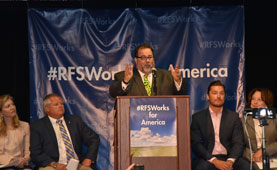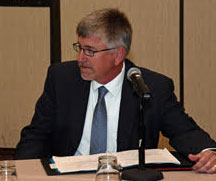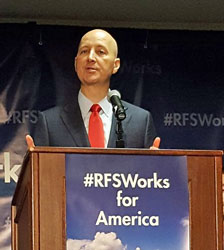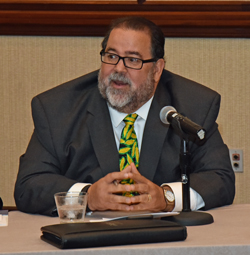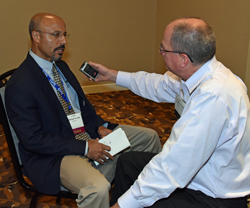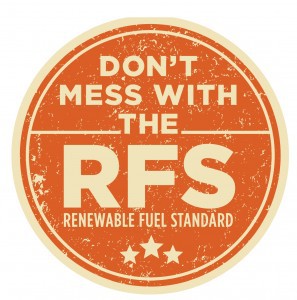 Breaking news came from Europe today as ethanol supporters were gathered in Kansas City that a European court has ruled against the European Union’s (EU) countrywide 9.5 percent antidumping duty on all ethanol imported from the United States. The duty had been in place since February 2013.
Breaking news came from Europe today as ethanol supporters were gathered in Kansas City that a European court has ruled against the European Union’s (EU) countrywide 9.5 percent antidumping duty on all ethanol imported from the United States. The duty had been in place since February 2013.
Both the Renewable Fuels Association (RFA) and Growth Energy are pleased with the ruling that the five-year antidumping duty of $83.03 per metric ton was invalid. The trade organizations filed a joint complaint in May 2013, outlining violations by the European Commission in its antidumping investigation. The antidumping duty had effectively shut out U.S. ethanol producers from accessing the European market, which before the penalty was imposed had represented a 300-million-gallon market for our industry.
“The antidumping duty should have never been assessed,” said RFA President and CEO Bob Dinneen. “We feel vindicated and thank the EU General Court for its commonsense ruling.”
“From the beginning, we believed the implementation of an EU duty on imported ethanol violated EU law,” said Emily Skor, Growth Energy CEO. “We would like to thank the EU General Court for its fair and logical ruling, and are pleased with their decision.”
However, the antidumping duty remains in place, pending a possible appeal by the EU. The EU has approximately two months to file an appeal.
Listen to Bob Dinneen’s comments on the ruling: RFA CEO Bob Dinneen on EU ruling


